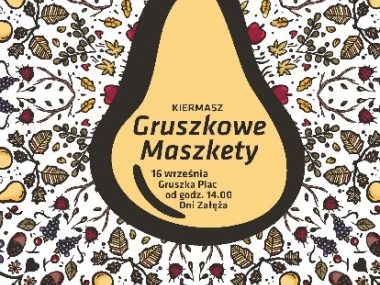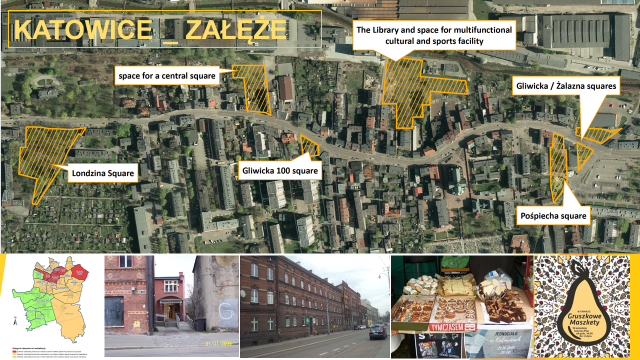Katowice’s resilience potential – “The Pear Festival Experiment”
Edited on
19 April 2018Katowice at the heart of the upper Silesian agglomeration, a city of over 2 million people, is an important economic, academic and cultural center in southern Poland. A vibrant city that faces all kinds of social, economic, infrastructural and environmental problems. The city has a long history of mining and metallurgic manufacturing and it must take on the challenge of industrial transition and innovative development. It is countering with a decrease in population and the migration of young educated people from the city.

In 2016 City development department started implementing its new “Local Revitalization Programme”. A fitting strategy on how to revive the area. Part of the programme concerns the district of Załęże. A mere 10,000 inhabitants covering an area of roughly 3% of the city. The deprived district is divided into two functional zones, housing in the north and industry in the south. An area where all socio-economic and environmental issues are clearly visible. Depopulation, high concentration of unemployment, violence, low-standard housing and air pollution result in a general concentration of poverty. The most critical indicated problem is of a social condition, also known as social anomie, in which there is a disintegration or disappearance of the norms and values that were previously common to the society. It leads to a weak residents’ mentality, a low self-esteem and unwillingness to search for work.
Urban Living Lab – creating a sense of community
It is of vital importance that the neighbourhood is building up resilience and is finding ways to become less vulnerable to the changing environment. First step is to create neighbourhood involvement and to engage local citizens to work together for their district. Important goal is to create solutions that are feasible and can be incorporated into current or future activities and projects implemented in the city by local authorities and other partners. In order to make Załęże more resilient representatives of locally based institutions were invited to give their opinion about needed actions and projects that should achieve the objectives. Several pathways were formulated on different social, economic, spatial and institutional aspects, all co-created with citizens.

Experimenting for urban resilience
To give an impulse for building new interpersonal relationships within the district of Załęże, the city of Katowice decided to organize an experiment that should increase citizens’ engagement in local affairs by creating an opportunity for the community to self-organize. During the Załęże Days at Londzin Square (a.k.a. Pear Square), held in October 2017, all institutions from Załęże organized one big district event. At the “Gruszkowe Maszkety”, the Pear Festival, pear-sweets like cakes and jams and other home made products were prepared and sold. Buyers were asked to fill in a short survey to give their opinion on how the earned money should be spend to benefit the community.
The Pear Festival Experiment proved that a sense of community exists in the Załęże district. Residents are willing to devote time to organize an event and they are eager to cooperate and participate in joined work for the district. The Festival has positively strengthened the Załęże’s image and is a first step towards a positive climate change for the area. It is planned to be repeated.
Submitted by rkoskamp on
